THE ONLY
GRAMMAR
BOOK
YOULL EVER NEED
A ONE-STOP SOURCE
FOR EVERY
WRITING ASSIGNMENT
SUSAN THURMAN
Edited by Larry Shea
 2003. F+W Media, Inc.
2003. F+W Media, Inc.
Adapted from The EverythingGrammar and Style Book
by Susan Thurman. 2002. F+W Media, Inc.
All rights reserved. This book, or parts thereof, may not be reproduced
in any form without permission from the publisher; exceptions
are made for brief excerpts used in published reviews.
Published by
Adams Media, a division of F+W Media, Inc.
57 Littlefield Street, Avon, MA 02322 U.S.A.
www.adamsmedia.com
ISBN 10: 1-58062-855-9
ISBN 13: 978-1-58062-855-6
eISBN: 978-1-44051-926-0
Printed in the United States of America.
20 19 18 17 16 15 14 13 12 11
Library of Congress Cataloging-in-Publication Data
Thurman, Susan (Susan Sommers)
The only grammar book you'll ever need / Susan Thurman.
p. cm.
ISBN 1-58062-855-9
1.
English language-Grammar--Handbooks, manuals, etc. I. Title.
PE1112.T495 2003
428.2-dc21
2002153891
This publication is designed to provide accurate and authoritative information with regard to the subject matter covered. It is sold with the understanding that the publisher is not engaged in rendering legal, accounting, or other professional advice. If legal advice or other expert assistance is required, the services of a competent professional person should be sought.
-From a Declaration of Principles jointly adopted by a Committee of
the American Bar Association and a Committee of Publishers and Associations
Many of the designations used by manufacturers and sellers to distinguish their products are claimed as trademarks. Where those designations appeal* in this book and Adams Media was aware of a trademark claim, the designations have been printed with initial capital letters.
This book is available at quantity discounts for bulk purchases.
For information, call 1-800-289-0963. Contents Introduction The Only Grammar Book Youll Ever Need. Wow.
This book must be really good, mustnt it? But before we tell you why this modestly titled volume really is the only grammar book youll ever need, lets think about why you need a grammar book at all. Maybe all that talk in English class about parts of speech and dangling participles never truly sunk in, even after your teacher covered the blackboard with those helpful sentence diagrams. (If English is not your first language, you might not even have had the benefit of such instruction.) Maybe you did know this material once, but many of the fine points of English grammar now give you trouble. Now you have to write somethinga paper, a letter, a memofor school, work, or your personal life. You might not be sure how to begin it, and youre definitely not confident about completing it correctly. The Only Grammar Book Youll Ever Need explains the necessary terms for understanding and discussing grammar, the important rules and their exceptions, and all the most common writing errors including how to avoid them.
This book can help you out in all types of writing situations, not just in formal assignments. Lets say youre rereading an e-mail youve composed (as you always do just before clicking Send, right?). After reading this book, youll find it much easier to notice and correct missing words, inappropriate language, unclear references, common misspellings, and more. This may be the only grammar book youll ever need, but its not the only book youll ever need for writing. A good dictionary (such as a hardcover college edition) is an essential desktop accessory, and a thesaurus can save you time when youre stumped looking for the right word. For certain types of work (especially academic writing), you may need one of the style guides listed in Chapter 10.
But for solving tricky grammar questions, avoiding embarrassing errors, and getting your thoughts organized enough to put pen to paper, this compact work will provide you with all the tools youll ever need. Chapter 1
Finding the Right Words T he most damaging mistakes a writer can make are probably misspelling or misusing words. Just a few of these errors will make a reader lose confidence in what youre trying to say. Here are the basic rules of English spelling and the most commonly misused words. For further help, Appendix A gives the correct spelling of hundreds of words that often confuse even the best spellers. Spelling It Out You probably remember this spelling rule from your elementary school: I before e,
Except after c,
Or when sounded as a,
As in neighbor or weigh.
Thats certainly a helpful rulemost of the time. It works for words such as beige, ceiling, conceive, feign, field,inveigh, obeisance, priest, receive, shield, sleigh, and weight. But take a look at all these words: ancient, being, caffeine,either, feisty, foreign, height, leisure, protein, reimburse, science,seize, society, sovereign, species, sufficient, and weird. There are an awful lot of exceptions, arent there? Here are some rules that generally apply to English nouns. Every rule will have an exception (and probably more than one), but these rules will provide you with some useful guidelines. Forming Plurals of Nouns 1. To form the plural of most English words that dont end in s, z, x, sh, ch, or ss, add s at the end:  desk = desks, book = books, cup = cups 2.
desk = desks, book = books, cup = cups 2.
To form the plural of most English words that end in s, z, x, sh, ch, and ss, add es at the end:  bus = buses, buzz = buzzes, box = boxes, dish = dishes, church = churches, kiss = kisses There are some exceptions to this rule that include quizzes,frizzes, and whizzes. (Note that the z is doubled.) 3. To form the plural of some English words that end in o, add es at the end (this might now be known as the Quayle Rule):
bus = buses, buzz = buzzes, box = boxes, dish = dishes, church = churches, kiss = kisses There are some exceptions to this rule that include quizzes,frizzes, and whizzes. (Note that the z is doubled.) 3. To form the plural of some English words that end in o, add es at the end (this might now be known as the Quayle Rule):  potato = potatoes, echo = echoes, hero = heroes, veto = vetoes To make things interesting, for some other words that end in o, add only s at the end:
potato = potatoes, echo = echoes, hero = heroes, veto = vetoes To make things interesting, for some other words that end in o, add only s at the end:  auto = autos, alto = altos, two = twos, zoo = zoos, piano = pianos, solo = solos Andjust to keep you on your toessome words ending in o can form the plural in either way:
auto = autos, alto = altos, two = twos, zoo = zoos, piano = pianos, solo = solos Andjust to keep you on your toessome words ending in o can form the plural in either way:  buffalo = buffaloes/buffalos, cargo = cargoes/cargos, ghetto = ghettos/ghettoes 4. To form the plural of most English words that end in a consonant plus y, change the y to i and add es:
buffalo = buffaloes/buffalos, cargo = cargoes/cargos, ghetto = ghettos/ghettoes 4. To form the plural of most English words that end in a consonant plus y, change the y to i and add es: lady = ladies, candy = candies, penny = pennies 5. To form the plural of most English words that end in a vowel plus y, add s:
lady = ladies, candy = candies, penny = pennies 5. To form the plural of most English words that end in a vowel plus y, add s:
Next page
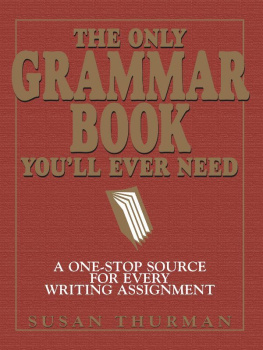

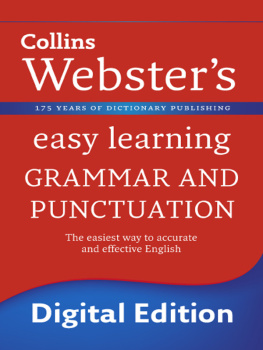
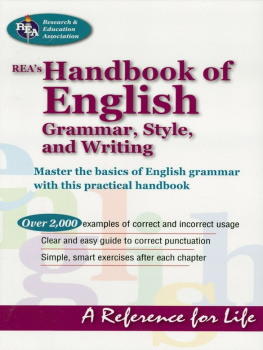
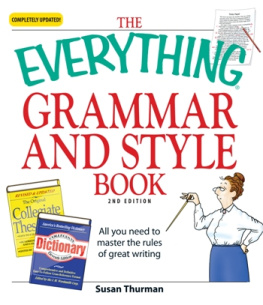
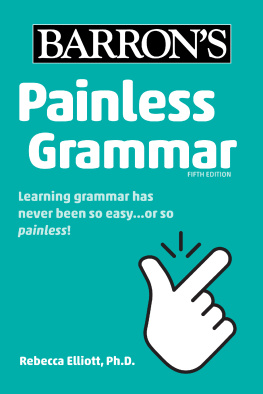
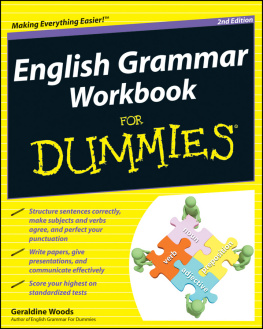
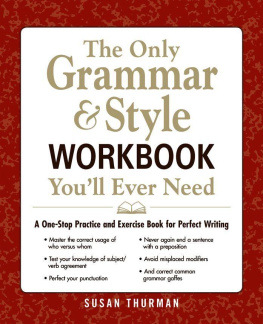
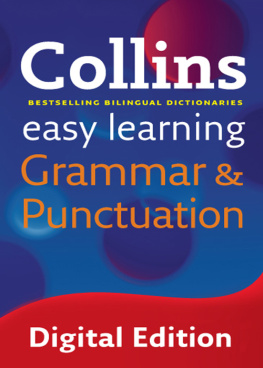
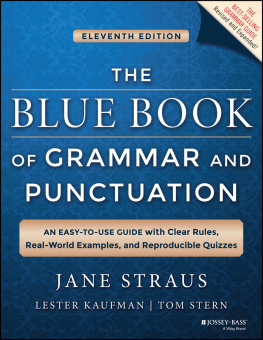
 2003. F+W Media, Inc.
2003. F+W Media, Inc. desk = desks, book = books, cup = cups 2.
desk = desks, book = books, cup = cups 2.